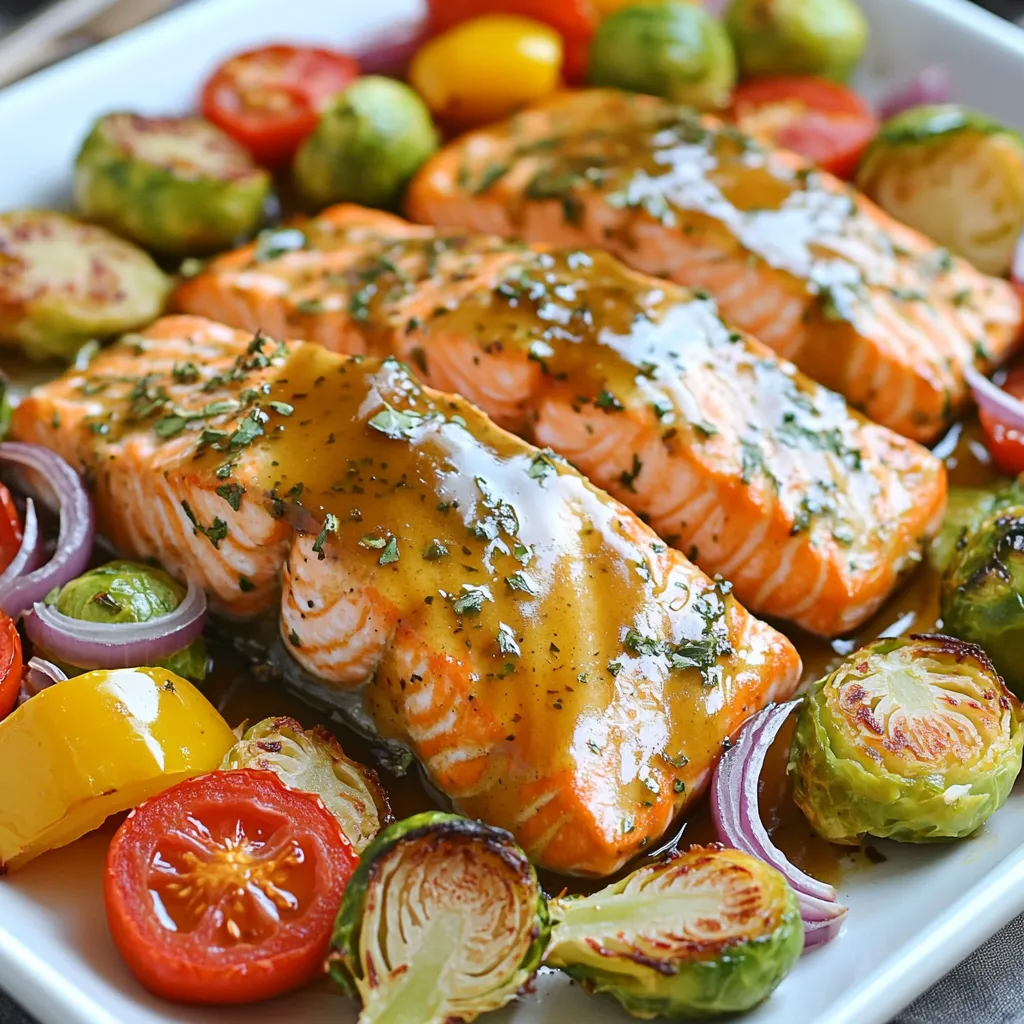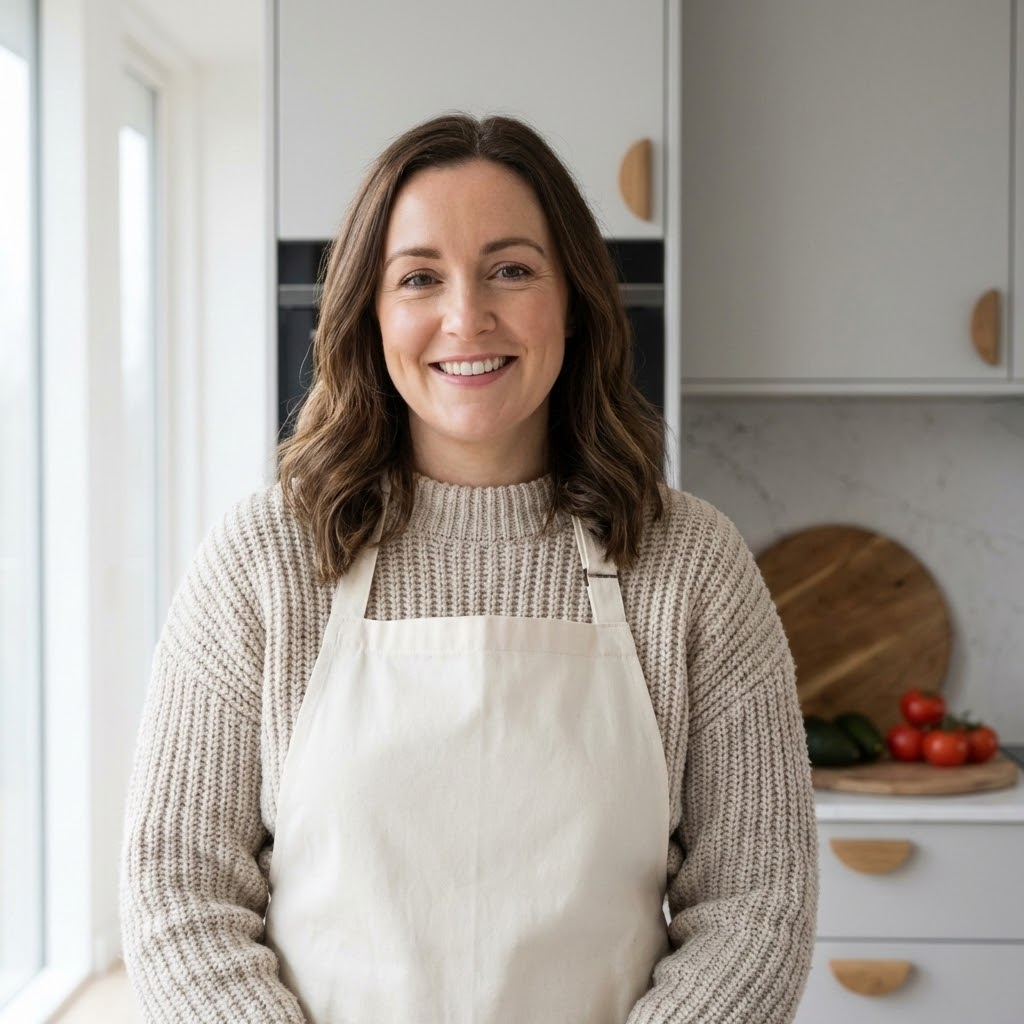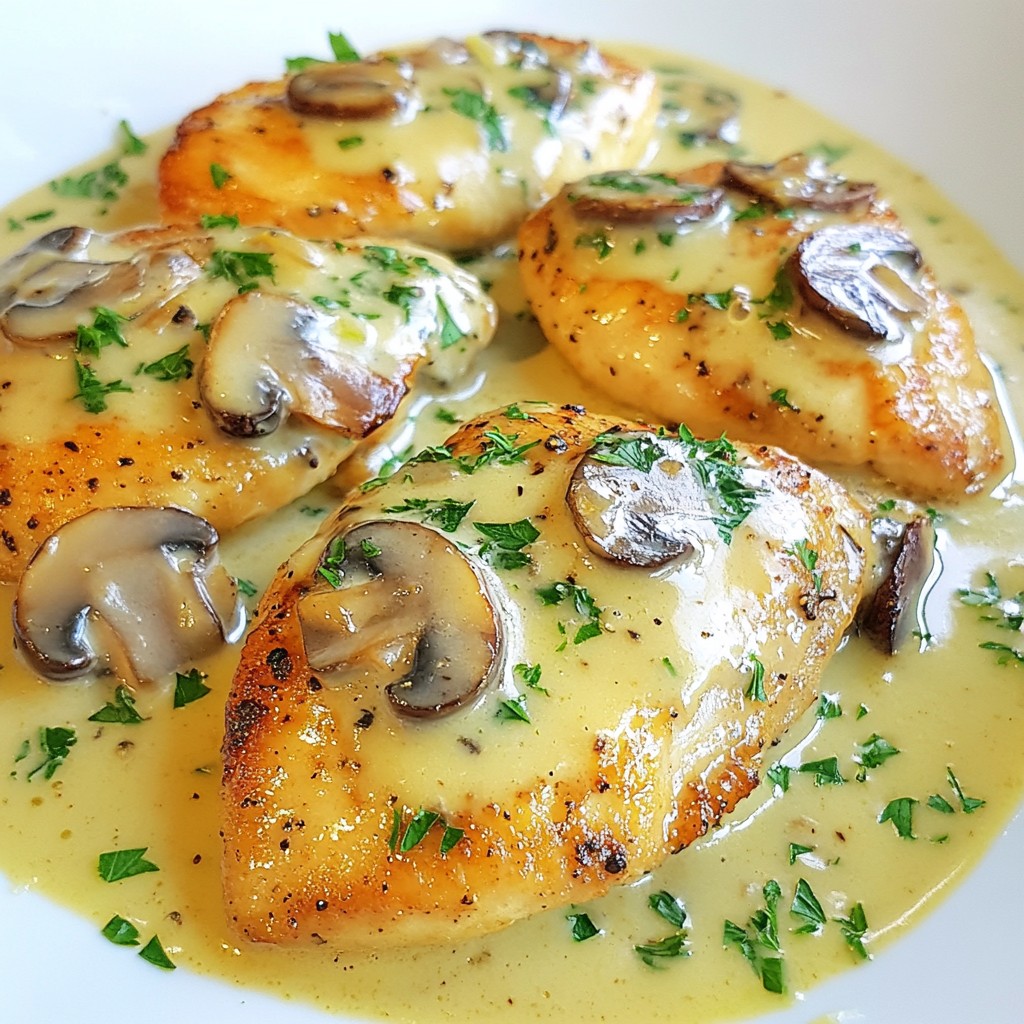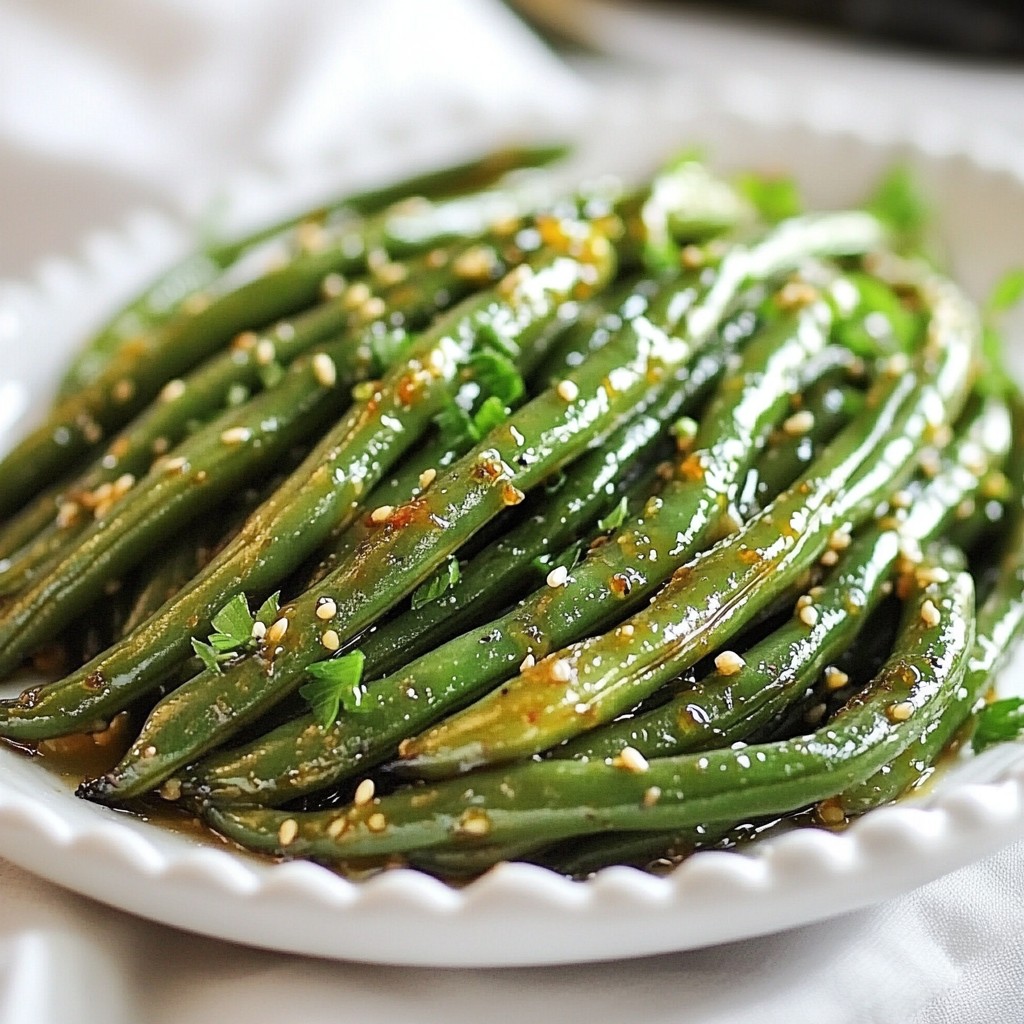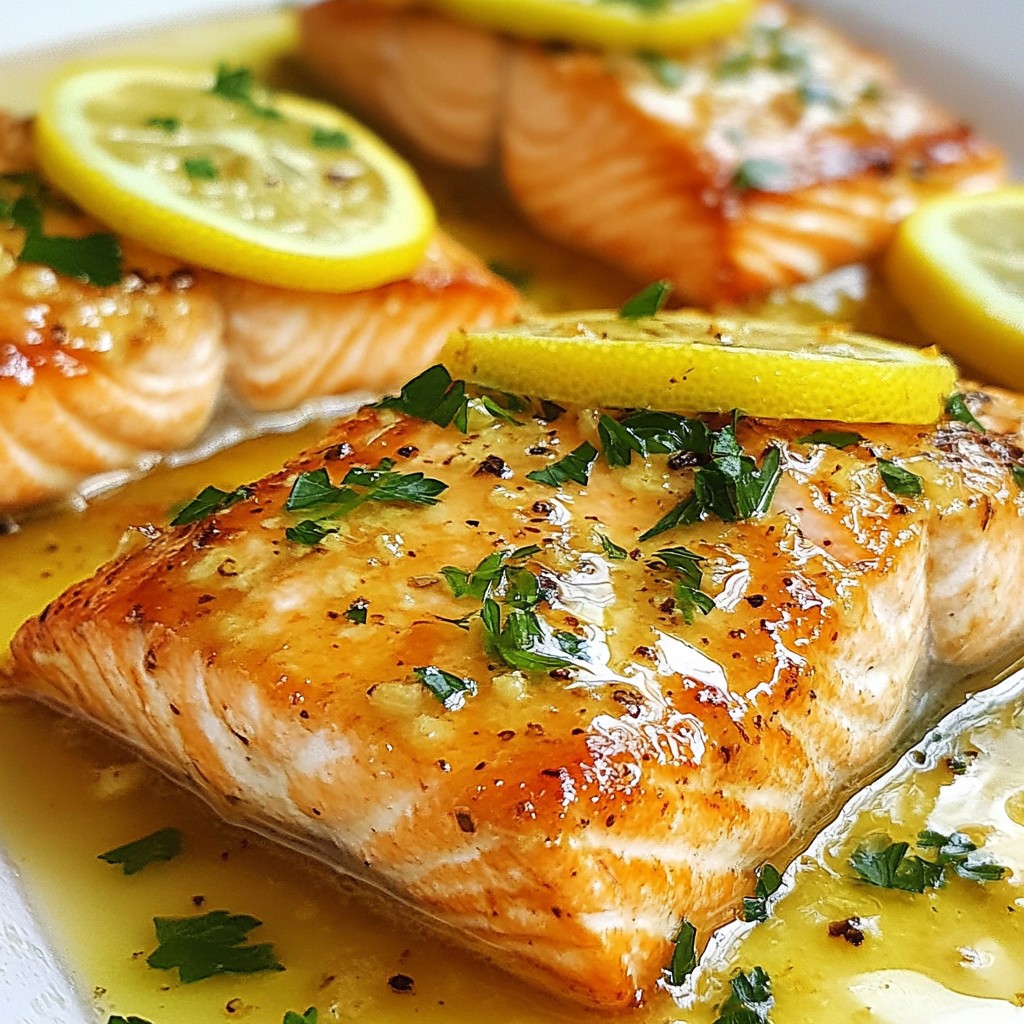Welcome to Sheet-Pan Maple Dijon Salmon and Veggies Delight! If you’re looking for a quick, tasty, and healthy meal, this recipe is a winner. I’ll guide you through making juicy salmon paired with colorful veggies, all in one pan. You’ll enjoy rich flavors from the maple and Dijon blend, making dinner a breeze. So grab your apron, and let’s dive into this simple, delicious meal that will impress your family!
Ingredients
Main Ingredients for Sheet-Pan Salmon
You need fresh salmon for this dish. I recommend using:
– 4 salmon fillets (6 oz each)
– 2 tablespoons Dijon mustard
– 3 tablespoons pure maple syrup
– 2 tablespoons olive oil
These main ingredients create a tasty base. The salmon offers healthy fats. The maple syrup adds sweetness, while the Dijon gives a nice tang.
Vegetables to Include
For great color and flavor, include these veggies:
– 2 cups Brussels sprouts, halved
– 1 bell pepper, sliced (any color)
– 1 medium red onion, cut into wedges
– 1 cup cherry tomatoes
These vegetables provide crunch and a pop of color. Brussels sprouts are rich in vitamins. Bell peppers add sweetness, and tomatoes bring juiciness.
Flavor Enhancers and Seasonings
To boost the taste, you’ll need:
– 1 teaspoon garlic powder
– 1 teaspoon onion powder
– 1 teaspoon smoked paprika
– Salt and pepper to taste
These seasonings add depth to the dish. Garlic powder and onion powder enhance the savory notes. Smoked paprika gives a subtle smoky flavor, making each bite exciting.
Step-by-Step Instructions
Preparing the Oven and Sheet Pan
First, set your oven to 400°F (200°C). This heat helps the salmon and veggies cook well together. Next, line a sheet pan with parchment paper. This makes cleanup easy and keeps food from sticking.
Making the Maple Dijon Mixture
In a small bowl, combine the following ingredients:
– 2 tablespoons Dijon mustard
– 3 tablespoons pure maple syrup
– 2 tablespoons olive oil
– 1 teaspoon garlic powder
– 1 teaspoon onion powder
– 1 teaspoon smoked paprika
– Salt and pepper to taste
Whisk these together until they blend nicely. This mixture adds a sweet, tangy flavor to your salmon and veggies.
Arranging the Salmon and Vegetables on the Pan
On one side of the sheet pan, place the four salmon fillets. Brush half of the maple Dijon mixture over them. This coats the salmon and adds flavor.
On the other side, spread out the halved Brussels sprouts, sliced bell pepper, and onion wedges. Drizzle the rest of the maple Dijon mixture on top. Toss the veggies well to ensure they are coated evenly.
Now, scatter the cherry tomatoes around the veggies. They add color and sweetness to the dish.
Roasting Time and Temperature Tips
Place the sheet pan in the oven and roast for 15-20 minutes. The salmon is done when it flakes easily with a fork. The veggies should be tender and slightly caramelized.
After roasting, take the pan out and let it rest for 5 minutes. This helps the flavors settle. Enjoy your delicious meal!
Tips & Tricks
Achieving the Perfect Salmon Texture
To get the best salmon, start with fresh fillets. Look for bright, shiny skin. The flesh should feel firm to the touch. Before cooking, let the salmon sit at room temperature for 15 minutes. This helps it cook evenly. When you brush on the maple Dijon mixture, don’t hold back! Coat it well for great flavor. Bake until it flakes easily with a fork, about 15-20 minutes. This means it is cooked just right.
Vegetable Preparation Tips
Prep your veggies right before cooking. Cut Brussels sprouts in half for even cooking. Slice the bell pepper into nice thin strips. This helps them roast well. The red onion should be in wedges for a sweet taste. Toss all veggies in the remaining maple Dijon mix. This adds great flavor and helps them caramelize. Spread them out on the pan. Crowding them can lead to steaming instead of roasting.
Cleaning and Managing Cookware
Cleaning up after cooking can be a breeze. Use parchment paper to line your sheet pan. It makes for easy cleanup. Once you finish cooking, let the pan cool before washing. Soak any stuck-on bits in warm, soapy water for a few minutes. For stubborn stains, a gentle scrub with a sponge works well. Keeping your cookware in good shape means it lasts longer. Plus, it makes your next meal prep easier!
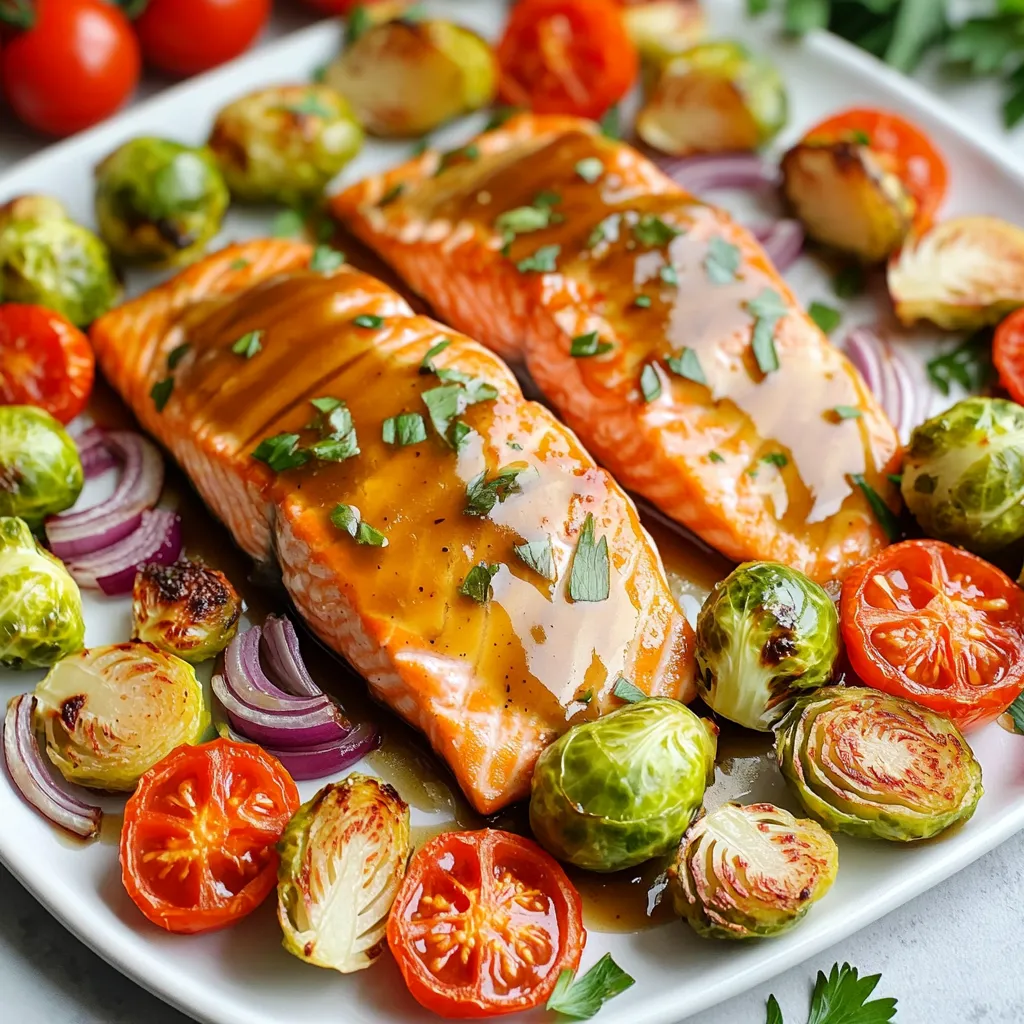
Variations
Alternative Vegetables to Consider
You can switch up the veggies you use. Try using asparagus for a fresh crunch. Zucchini slices also work well. Carrots add a sweet flavor and vibrant color. Get creative with seasonal veggies like cauliflower or green beans. Just keep the cooking time in mind, as some veggies cook faster than others.
Different Marinade Options
The maple Dijon marinade is great, but you can explore other flavors. Try using soy sauce for a salty kick. Honey can replace maple syrup if you like it sweeter. For a tangy twist, add lemon juice or balsamic vinegar. You can mix in fresh herbs like dill or thyme for added taste.
Making It Spicy: Adding Heat
If you love some spice, there are easy ways to add heat. Mix in red pepper flakes for a mild kick. You can also add sriracha or your favorite hot sauce to the marinade. Another option is to use a spicy mustard instead of Dijon. This gives a nice zing to the salmon and veggies.
Storage Info
Proper Storage for Leftovers
To keep your leftovers fresh, place them in an airtight container. This helps lock in moisture and flavor. Store the salmon and veggies together or separate them based on your preference. If stored correctly, they will last in the fridge for up to three days. Make sure to let the food cool to room temperature before sealing it.
Reheating Instructions
When you are ready to enjoy your leftovers, reheating is simple. Preheat your oven to 350°F (175°C). Place the salmon and veggies on a baking sheet. Cover them with foil to keep them moist. Heat for about 10-15 minutes or until warmed through. You can also use a microwave, but be careful not to overcook the salmon. Heat in short intervals, checking often.
Freezing Uncooked vs. Cooked Meal
If you want to freeze this meal, it is best to freeze the uncooked ingredients. Prepare the salmon and veggies, then place them in a freezer-safe bag or container. Remove as much air as possible. This method will keep your meal fresh for up to three months. If you freeze cooked salmon and veggies, they can last about two months. Just remember to thaw them in the fridge overnight before reheating.
FAQs
How long does it take to cook salmon on a sheet pan?
It takes about 15 to 20 minutes to cook salmon on a sheet pan. The key is to preheat your oven to 400°F (200°C). Check the salmon at 15 minutes. It should flake easily with a fork when done. If it needs more time, keep checking every few minutes.
Can I use frozen salmon for this recipe?
Yes, you can use frozen salmon for this recipe. Just make sure to thaw it first. Thaw it in the fridge overnight or use the quick method. Place it in a sealed bag and run it under cold water for about 30 minutes. After thawing, pat it dry and follow the same steps for seasoning.
What other seasonings can I add to the dish?
You can get creative with seasonings! Try adding fresh herbs like dill or thyme for extra flavor. Lemon zest can brighten the dish, too. If you want more heat, add red pepper flakes or a dash of cayenne. Use your favorite spices to make it your own!
Is this recipe suitable for meal prep?
Yes, this recipe is great for meal prep! Cook a batch and divide it into containers. It stays fresh in the fridge for up to four days. You can reheat it easily in the microwave or oven. This makes it a quick and healthy option for busy days.
This post covered how to make delicious sheet-pan salmon meals. You learned about key ingredients, step-by-step cooking tips, and variations to try. Proper storage and reheating methods ensure nothing goes to waste. Remember, you can adjust flavors and veggies to fit your taste. Experiment with spices or veggies to keep it fun and fresh. Enjoy your healthy meals and happy cooking!
